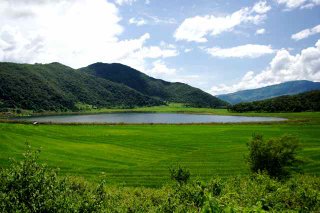By Helen Keller—In Her Own Words
The 100th Anniversary of The Story of My Life
Helen Keller began writing The Story of My Life in 1902, when she was 22 years old and still a student at Radcliffe College, the sister school of Harvard University in Cambridge, Massachusetts. Helen Keller, on her graduation from Radcliffe College, circa 1904 The Story of My Life contains three parts. The first is Helen Keller's autobiographical account of her life from childhood to the beginning of her studies at Radcliffe. This chronicle describes the transformation of Helen's life brought about by the arrival of Anne Sullivan, her teacher and mentor, when she succeeded in conveying to Helen the "mystery of language." Part II contains Helen's letters to family and friends, arranged in chronological sequence, and documents her growth in thought and expression through her writing. The introduction and editorial comments in this section were contributed by John Macy, an editor of the Youth's Companion magazine and an instructor at Harvard who became the literary agent for Ms. Keller and editor of many of her works. The third part, a supplementary section, contains an account of Helen Keller's life and education written by John Macy, based for the most part on the records and observations of Anne Sullivan. The Story of My Life first appeared as a serial of several installments in the Ladies Home Journal in 1902 and was met with universal acclaim. In 1903 it was published in book form by Doubleday, Page & Co. and became a critical and commercial success.
The Story of My Life has become an enduring classic of American literature. It was always to be the most popular of Helen Keller's works, with numerous editions published throughout the years. Today, the book is available in more than 50 languages, including most European languages, Swedish, Russian, and Japanese, as well as Marathi, Pushtu, Tagalog, and Vedu. The American Foundation for the Blind—the organization to which Helen Keller devoted more than 40 years of her life—is presenting this special online edition of The Story of My Life to commemorate the centennial of the book's publication. Throughout this edition, spelling and punctuation are rendered as they were in the original. The photographs, taken from the Helen Keller Archives of the American Foundation for the Blind, are for the most part those printed in the original. When an original photograph was unavailable, the closest possible facsimile was used. AFB was founded in 1921 and for decades guided by Helen Keller—an inspiring, courageous woman who fervently believed that blind people, with just a little help, can lead independent lives and give much more to society than they will ever take. Today, there are many more people, from newborns to the growing elder population, in need of a helping hand than Helen Keller ever imagined. With your support, the American Foundation for the Blind can reach out to those who need help. Thank you for your support. The Story of My Life, © 2009 American Foundation for the Blind. All rights reserved.



















_-_Portrait_of_Leo_Tolstoy_(1887).jpg)





